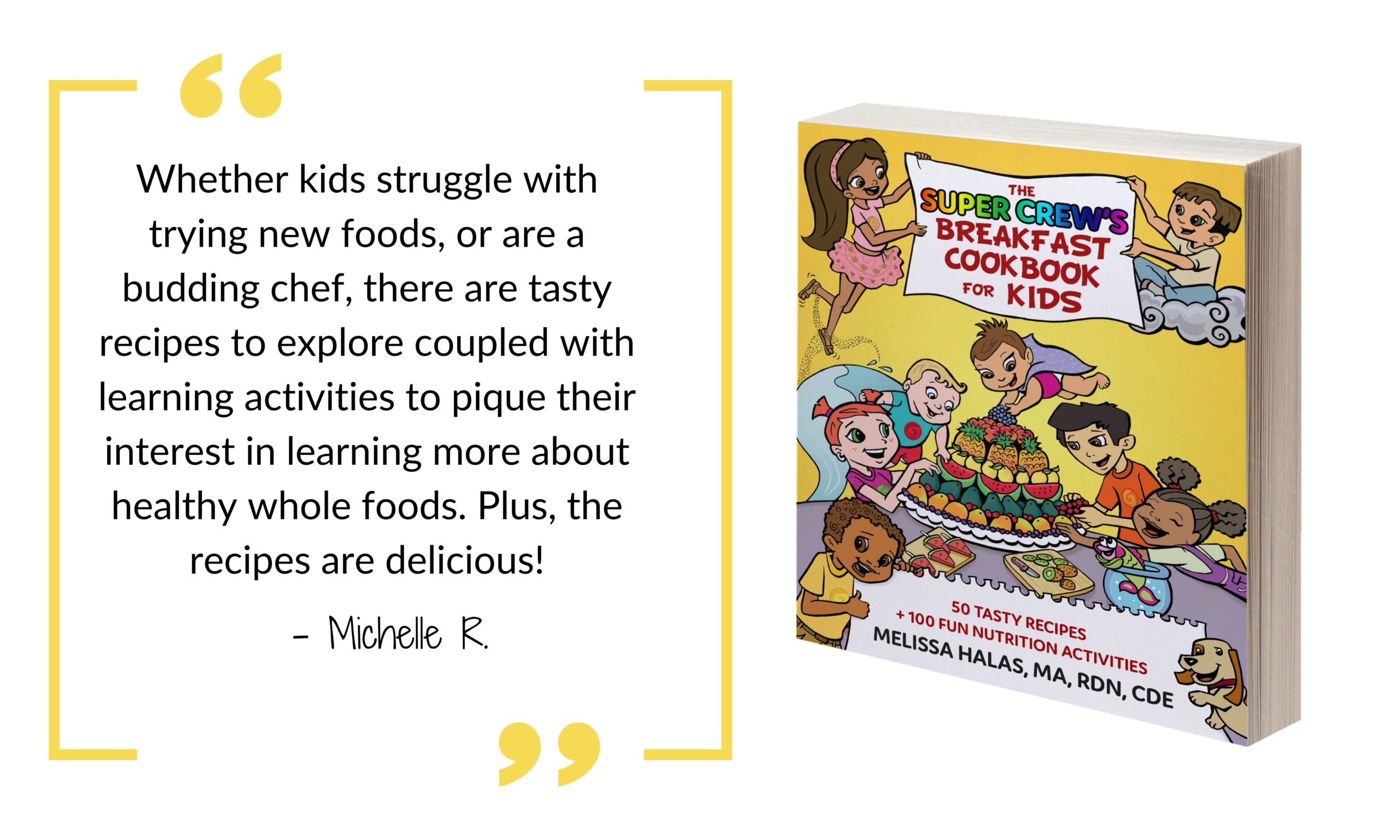
If your child is a picky eater, getting a healthy meal on the table is only half the battle. Check out these nutrition tips for picky eaters.
New and unfamiliar foods can be frightening to children, and picky eating is especially common in the toddler years. Developmentally, this is a time when your child is growing her sense of autonomy. This means she wants to make their own choices – including what, when, and how to eat. (1) Don’t despair! You may have heard stories of friends or relatives who used to be picky eaters as children, but now have a diverse food palate and enjoy a wide range of nutritious foods. With time, most children outgrow their picky eating phase. Managing picky eaters can be one of your new skills. Start with these seven strategies and tips for picky eaters to help them through this stage and grow to be adventurous eaters.
1. Keep in mind that tastes vary.
Everyone has unique taste preferences and favorite foods. Instead of pushing your favorites onto your child, allow her to sample a wide range of different foods so she can find her own favorites. On the flipside, be mindful of your food dislikes too. For example, even if you are not a fan of avocado, don’t let this prevent you from feeding this nutritious food to your little one!
2. Experiment with different methods of preparation.
Get creative with preparation methods! Maybe your child dislikes steamed broccoli but will love it prepared in a stir-fry or blended with other foods. Your picky eater may discover that food he wasn’t so fond of is a new favorite when cooked in a new way! Try to offer the most nutritious foods at the beginning of the meal when your child is most hungry. Managing picky eaters can involve many smaller, attainable steps to change behaviors.
3. Find ways to manage food jags.
A food jag is a term for when your child wants to eat the same few foods for each and every meal. If the food your child is stuck on is nutritious, you can continue to offer this food alongside a variety of other healthy options. With time, after seeing the rest of the family eating those other tasty foods, your child will likely be tempted to at least try those other foods, too—and he may be surprised to find new foods he likes! (2)
4. Make food fun and easy to eat for picky eaters!
For your younger children, offer food that is easy for them to eat, such as sliced up fruits and vegetables, peanut butter on apple or celery slices, or applesauce. Food should be fun! Make food art, serve uniquely shaped pasta, or make funny face veggie pizza.
Also Read : How to Be an Artful Parent: 11 Ways to Raise Creative Kids
5. Get your child involved in any part of the process!
Making the shopping list, going to the grocery store, helping with food prep, cooking (for the older children), or setting the table are all great options! The more opportunities your child has to experiment with food, the more likely she will be to enjoy eating that food, too. Encourage her to touch, smell, and play with her foods. Chances of her eating the food along the way become greater when she feels comfortable with them. Let her decorate a pizza, build a sandwich, or roll tortillas.
6. Model positive behaviors.
Watching parents prepare food helps improve your child’s healthy eating behaviors and increases quality family time. Your child learns by watching how you interact with food, so set a good example! If he sees you eat the food, he will be more likely to try it himself. Use mealtime as a time to teach your child about nutritious food choices. For example, show him why you choose whole grains and add fruits and vegetables to your meals.
7. Do your best to facilitate a pleasant mealtime environment.
Feeling frustrated when your child is a picky eater is totally normal. Do your best to swap any feelings of frustration for compassion. A happy meal environment avoids the “clean plate” club, makes mealtime screen-free time, and doesn’t include forcing your child to eat food. Strive to create a positive mealtime environment. This will help set the foundation for your child to develop good associations and a positive relationship with food to build on throughout his life.
Looking for more tips for picky eaters, with easy breakfast ideas, even the pickiest of children will love? Check out The Super Crew’s Breakfast Cookbook for Kids.






